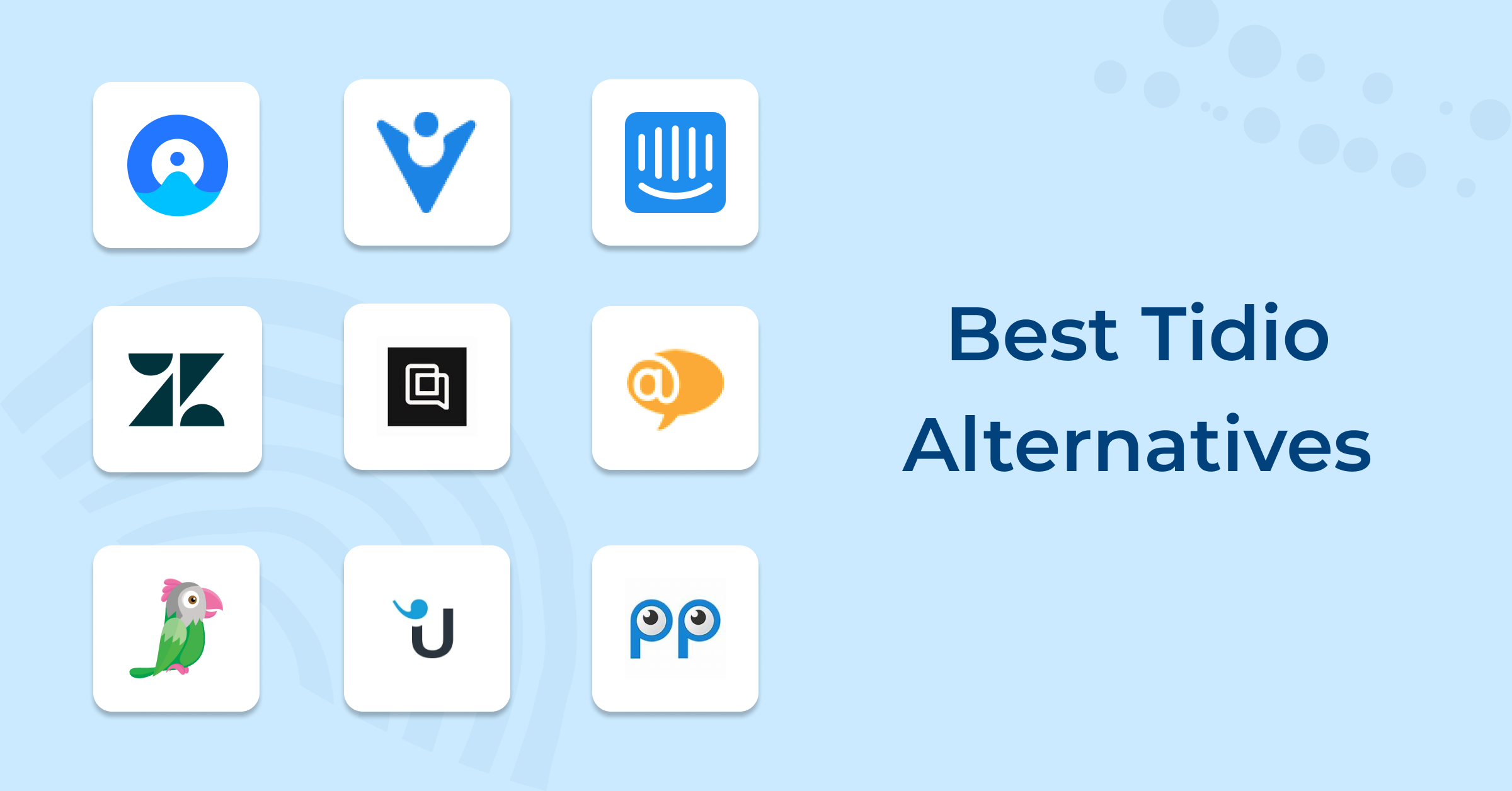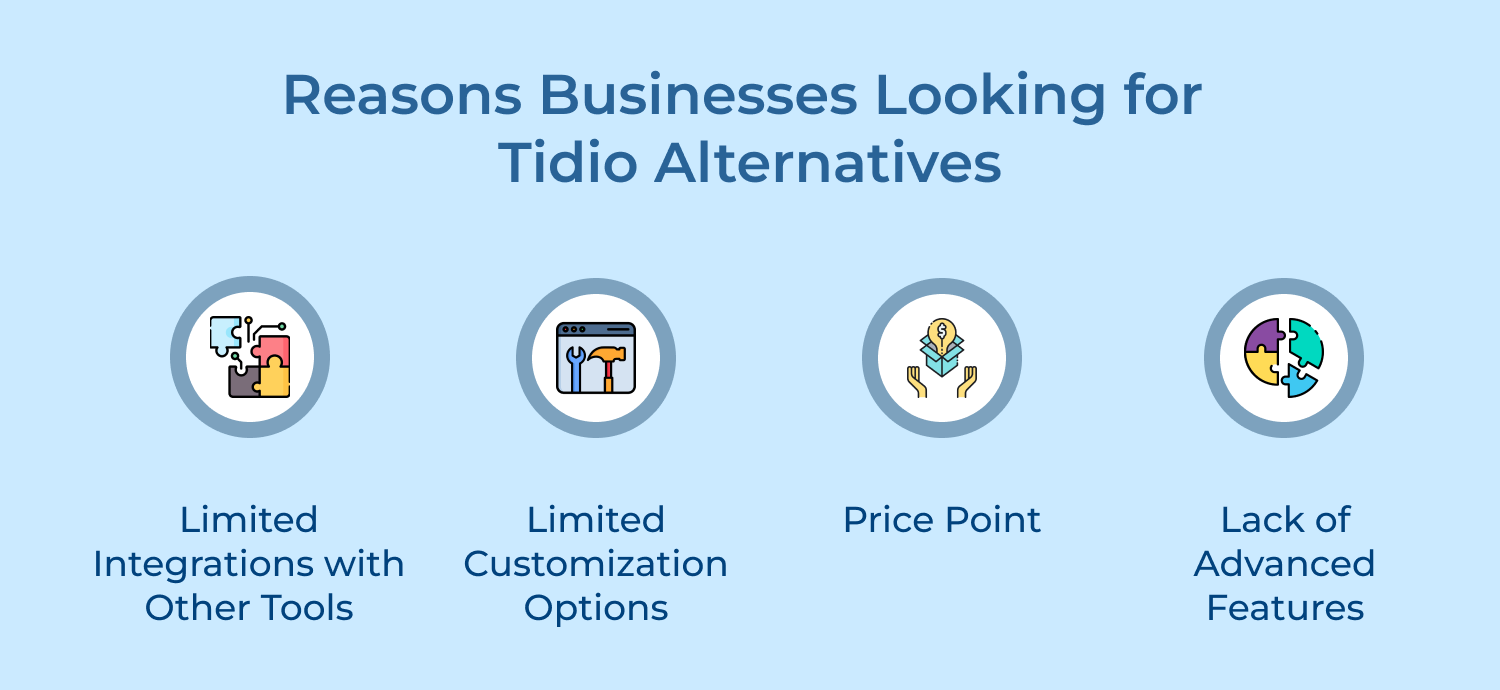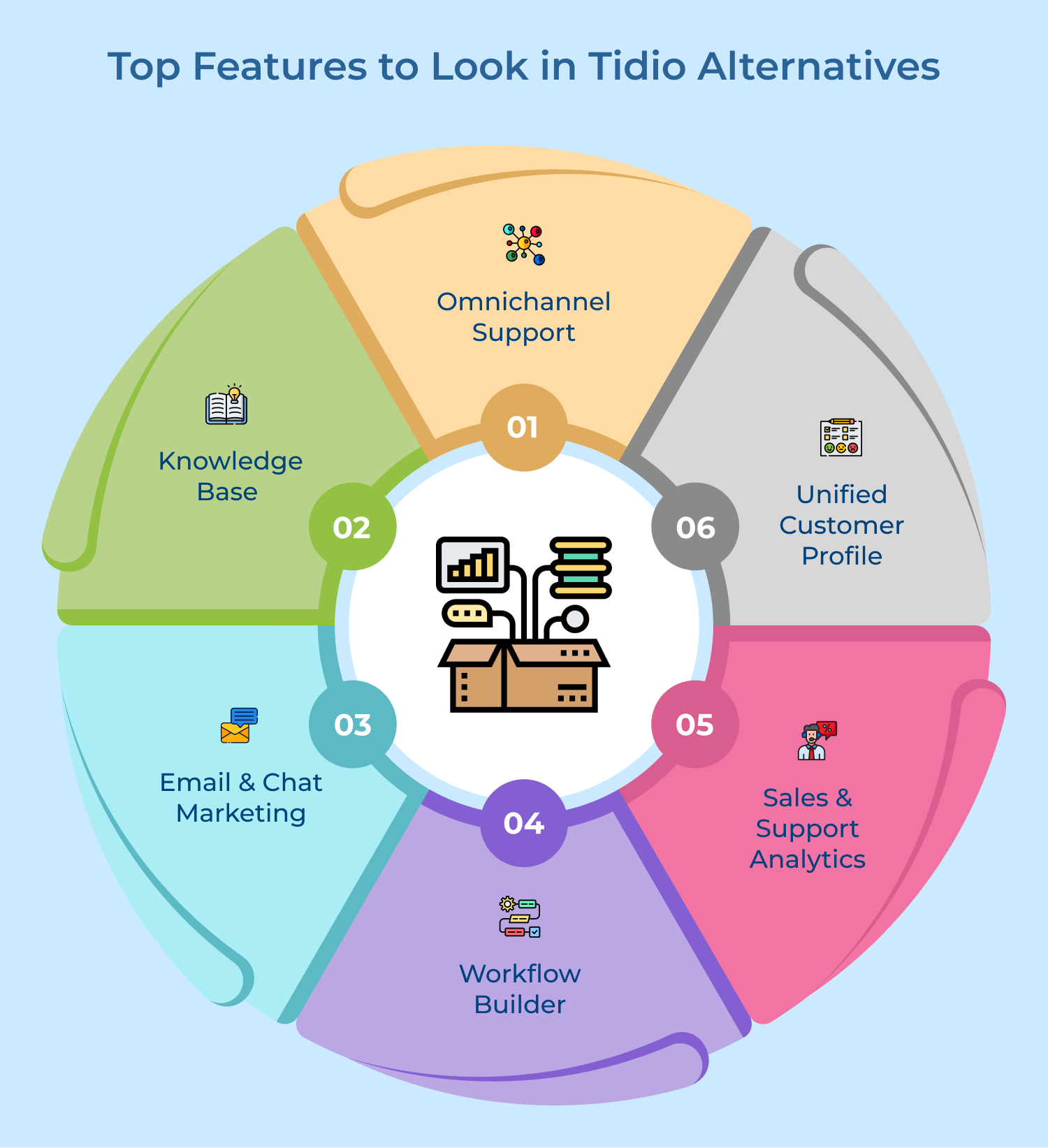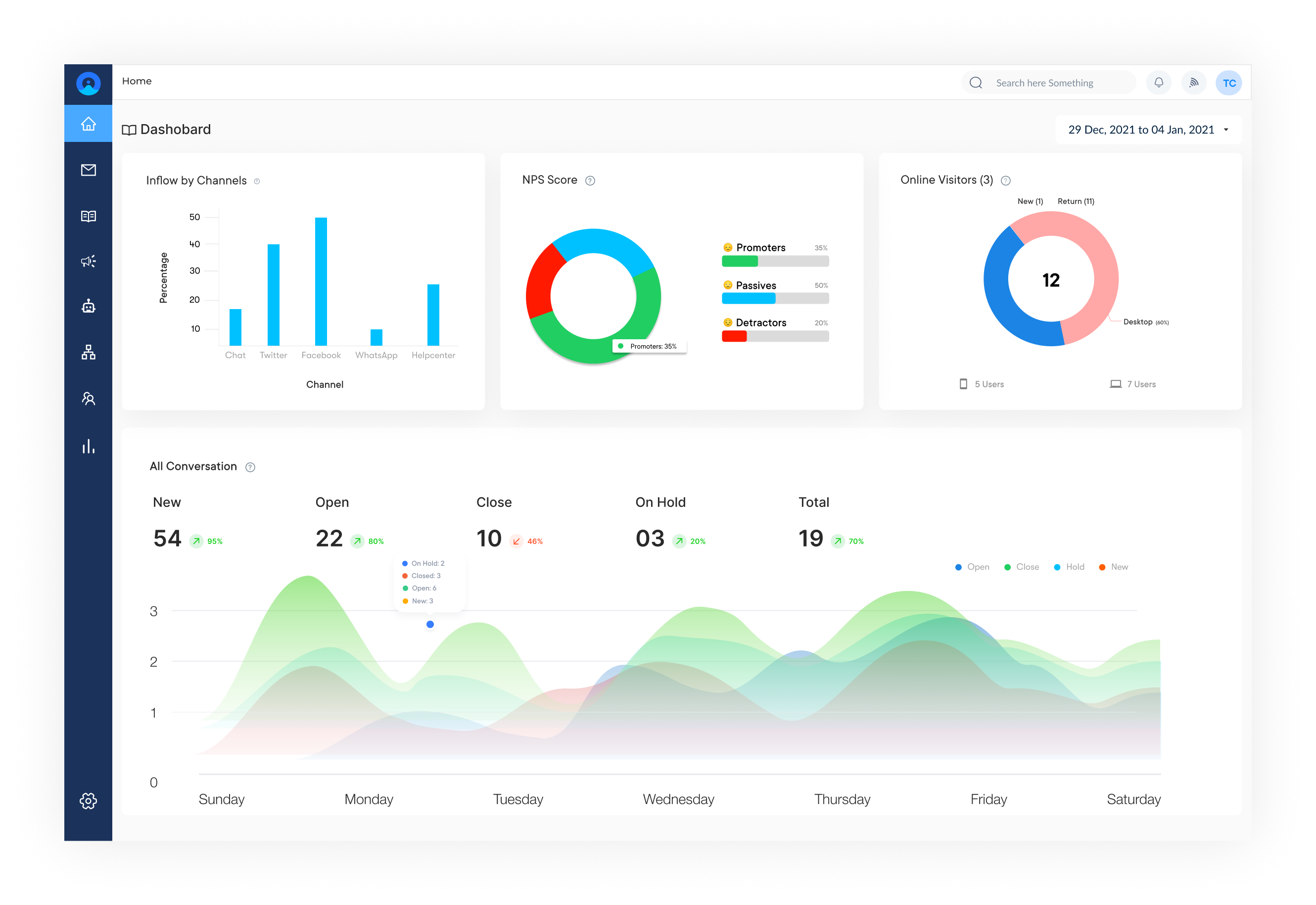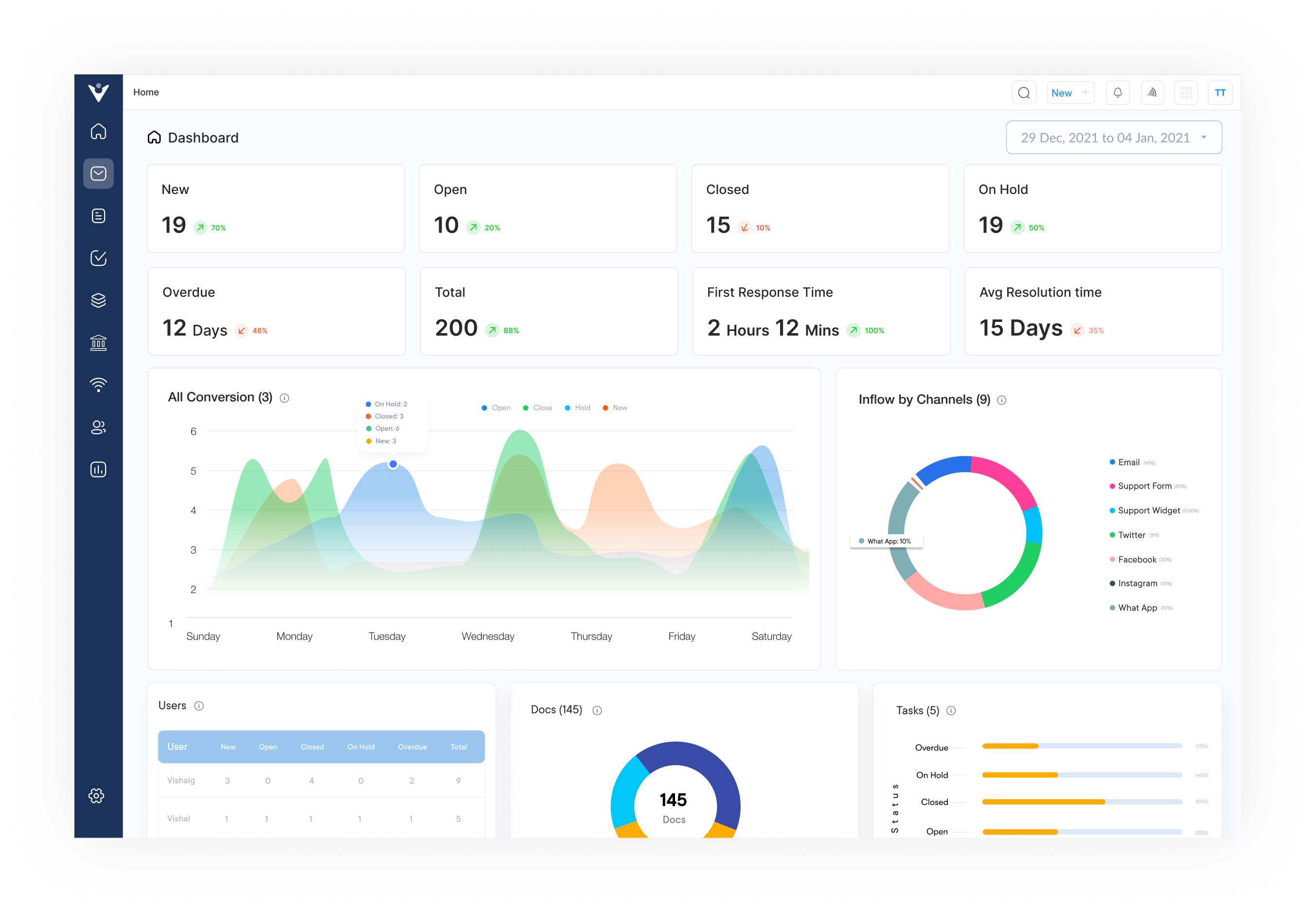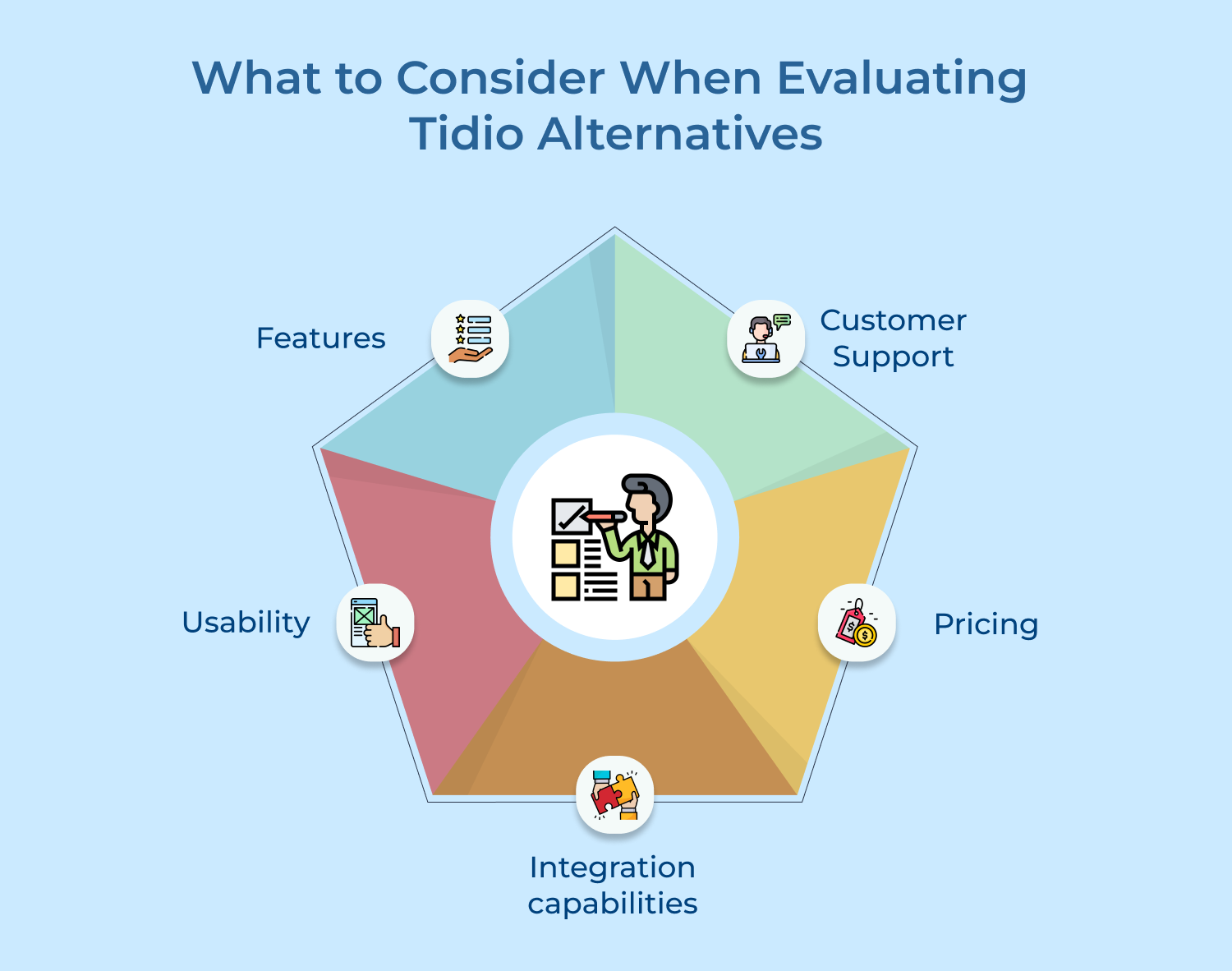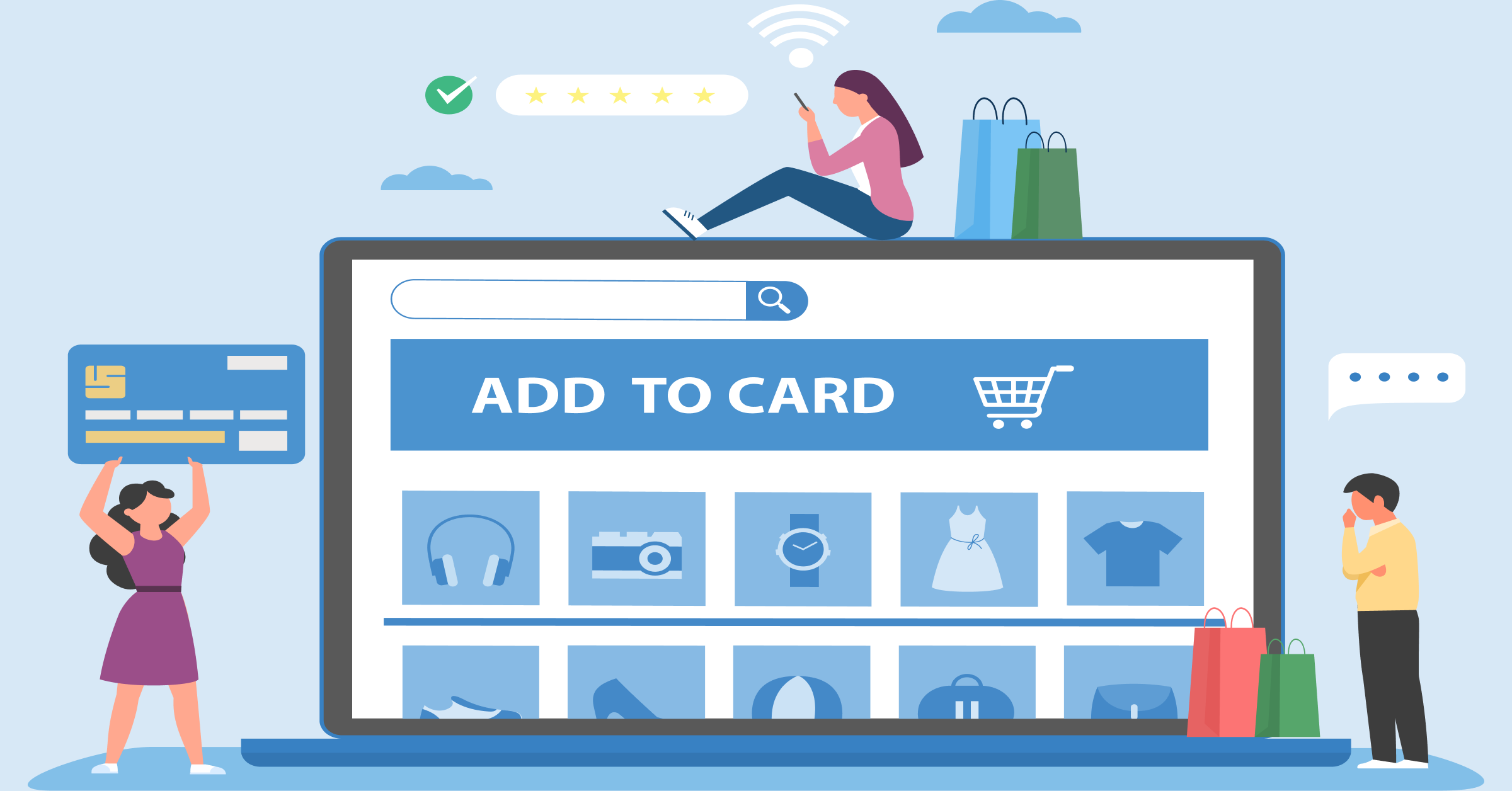1. Omnichannel Support
When considering Tidio alternatives, look for robust omnichannel support capabilities. The platform should seamlessly integrate various communication channels such as live chat, email, social media and phone support. It ensures a consistent customer experience across all touchpoints.
The ideal solution should allow agents to switch between channels effortlessly, maintaining context and conversation history. It should offer features like chatbots and self-service options to provide 24/7 support as well as reduce agent workload during peak times.
2. Knowledge Base
A comprehensive knowledge base is crucial for efficient customer support. Seek alternatives that offer easy-to-use content management systems for creating, organizing and updating articles. The knowledge base should be searchable, categorized and accessible to both customers as well as agents.
Look for features like article suggestions, feedback mechanisms and analytics to continually improve content. Ideally, the knowledge base should integrate with other support channels, allowing agents to quickly share relevant articles during conversations while enabling customers to find answers independently.
3. Email & Chat Marketing
Effective Tidio alternatives should provide robust email and chat marketing capabilities. Search for features such as customizable email templates, automated drip campaigns and personalized messaging. The platform should offer segmentation tools to target specific customer groups and analytics to measure campaign performance.
For chat marketing, seek options for proactive engagement, targeted messaging based on user behavior, along with the ability to create chatbot-driven marketing campaigns. CRM system integrations are also crucial for aligning marketing efforts with sales and support data.
4. Workflow Builder
A powerful workflow builder is essential for automating and streamlining support processes. Look for alternatives that offer intuitive, visual workflow editors allowing you to create complex automation without coding. The ideal solution should support triggers based on various events, conditions and customer attributes.
The platform should enable the creation of multi-step workflows that can route tickets, send notifications, update customer information and trigger actions in integrated systems. Flexibility to customize workflows for different teams or use cases is also important.
5. Sales & Support Analytics
Comprehensive analytics capabilities are crucial for optimizing sales and support operations. Seek alternatives that provide detailed insights into key metrics such as response times, resolution rates, customer satisfaction scores and agent performance.
Find the tools that provide customizable dashboards, real-time reporting and the ability to drill down into specific data points. Advanced features might include predictive analytics, sentiment analysis and trend identification. The analytics should also offer actionable insights to help improve team performance and customer experience.
6. Unified Customer Profile
A unified customer profile feature is vital for providing personalized and efficient support. The alternatives should aggregate customer data from various touch points into a single, comprehensive view. It ideally includes interaction history across all channels, purchase information, support tickets and relevant behavioral data.
The ideal way allows agents to quickly access this information during interactions, enabling more informed and contextual support. Integration with CRM systems as well as the ability to update profiles in real-time are also important considerations.
